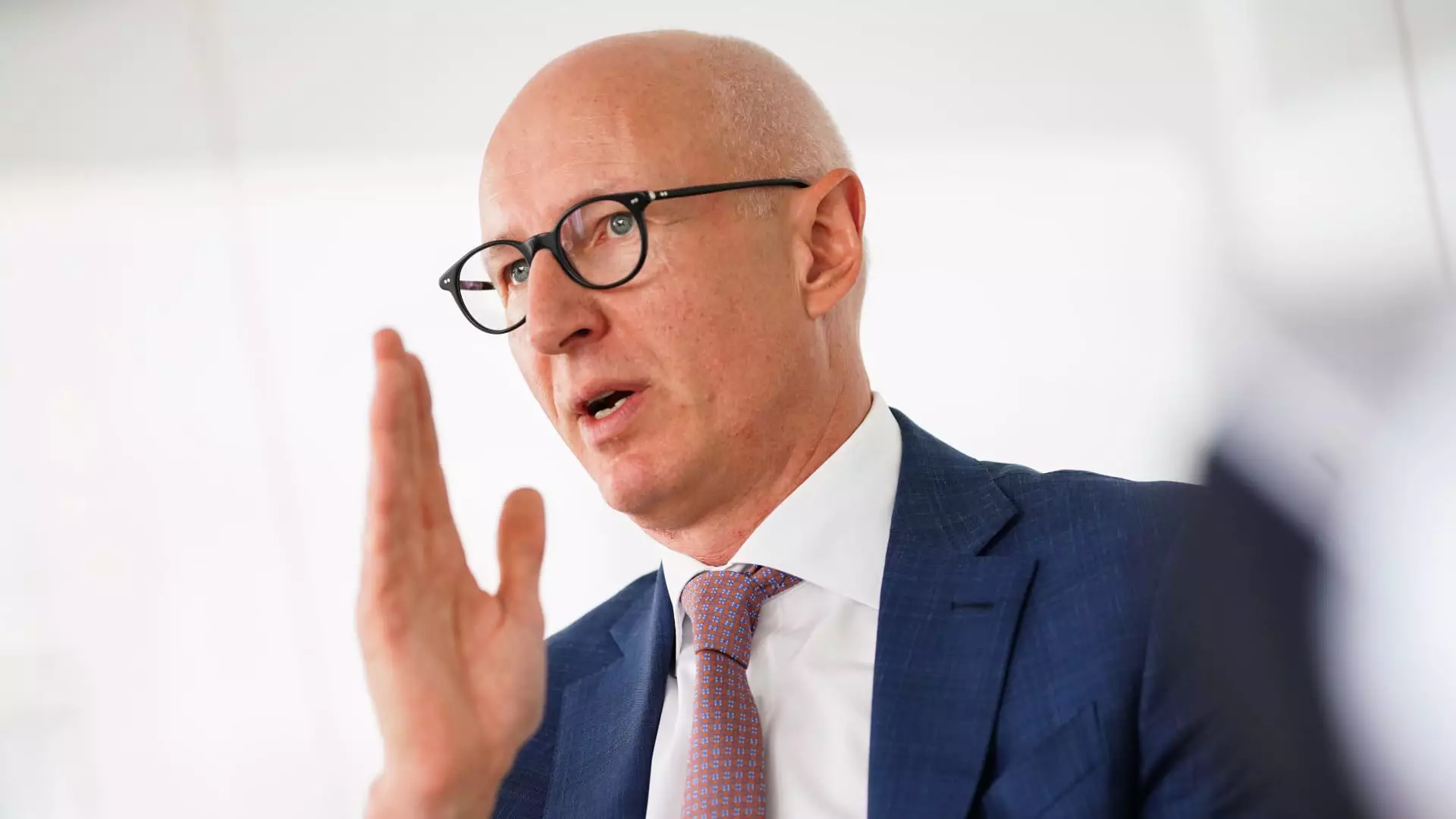As healthcare costs continue to rise in the United States, the spotlight is on pharmaceutical companies, particularly those driving the demand for high-priced medications. Novo Nordisk, a major player in the diabetes and weight loss drug market, has seen its flagship products, Wegovy and Ozempic, become increasingly sought after. With growing concerns over pricing practices, the Senate is poised to interrogate Novo Nordisk’s top executive, drawing attention to a broader debate around healthcare affordability.
The Congressional Hearing: A Crucial Examination
On an upcoming Tuesday, Lars Fruergaard Jørgensen, the CEO of Novo Nordisk, is expected to testify before the Senate Health, Education, Labor, and Pensions Committee. This hearing gains significance amidst claims by Senator Bernie Sanders, who feels compelled to scrutinize the price disparity between the United States and other countries for the company’s medications. With a stark contrast in costs—Ozempic priced at nearly $969 and Wegovy at approximately $1,350 in the U.S., compared to just $59 and $92 in Germany and the U.K., respectively—the discussion is not merely about corporate profit but fundamentally about public health and equity.
The price gap between America and other nations raises pressing questions. Why is it that patients in Europe can access life-altering medications for a fraction of the American price? This discrepancy hints at systemic issues within the U.S. healthcare landscape. Senator Sanders has highlighted that other pharmaceutical executives have noted they could manufacture a generic version of Ozempic for under $100 per month profitably—a statement that could challenge Novo Nordisk to reconsider its pricing strategy in a competitive market. The absence of generic alternatives further exacerbates the concern, trapping American consumers in a cycle of exorbitant healthcare expenses.
Healthcare Cost Implications for Americans
The current trajectory of drug pricing leaves many experts worried about the long-term implications for the American healthcare system. The Senate Health Committee anticipates a staggering $411 billion annual expenditure if half of the U.S. population opts for weight loss treatments from Novo Nordisk and its competitor, Eli Lilly. This expenditure significantly overshadows the $406 billion Americans spent on all prescription drugs combined in 2022. Therefore, the legislative hearing is about more than one company; it reflects the potential risk to the entire U.S. healthcare system under the weight of unsustainable pharmacological costs.
Many insurance providers and employers are grappling with the surge in costs associated with GLP-1 medications. While these treatments are essential for diabetes management, insurers have begun to impose restrictive measures on weight loss medication coverage, with some even dropping coverage altogether for non-essential conditions. The Department of Health and Human Services (HHS) reports that Medicaid does not typically cover weight loss treatments unless they are prescribed for another health issue—a significant barrier for many patients seeking such interventions.
Political Implications and Future Directions
The timing of the hearing aligns with ongoing discussions in the Biden administration aimed at regulating pharmaceutical pricing. With the introduction of mechanisms for price negotiation under the Inflation Reduction Act, drugs like Ozempic could be subject to review for price adjustments by the time the next round of drugs is selected and implemented in 2027. The administration’s efforts reflect a recognition of the economic burdens placed on American families by exorbitant drug prices, yet the outcome of these negotiations will be pivotal in determining whether real change is achieved.
Ultimately, the Senate hearing featuring Novo Nordisk’s CEO serves as a critical juncture for redefining how drug prices impact healthcare equity in America. A transparent inquiry into high medication costs may lead to substantial reforms that not only elevate accessibility but also align pharmacological practices with the health and well-being of all Americans. As the conversation unfolds, it is essential to persist in advocating for a healthcare system that prioritizes affordability and equity—qualities that should be at the forefront of every legislative agenda.

Leave a Reply